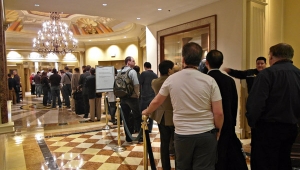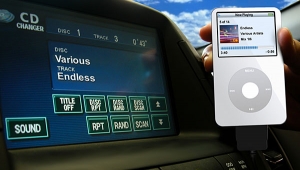| Columns Retired Columns & Blogs |
The RIAA has for years robbed the Artists and are worried about continuing they blame downloading for slower growth in sales I believe the quality of music has degraded to where people in my age group and above refuse to buy inferior sounding music and if you are lucky to find a good recording Artist's work they don't have but maybe one or two songs on Album worth purchasing the # of songs that are acceptable are lackluster at best.I say give me a Audiophile quality download option that is controlled by the Artist themselves and charge by the Song and i will buy a lot of Music and Artist can pay the leeches a small fee.I don't like it that Mom and Pop stores will be put out of Business i still like touching and going through the bins of old Lp's.I wish for analog recording's on the Cd's that look liek a old Lp there is nothing like a great sounding Lp the 96khz and 192khz are bout the best we will get though.


























